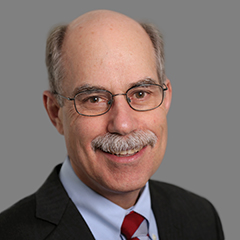Senior fellow emeritus Thomas Fraker is an expert in designing and implementing random assignment evaluations of social welfare programs. Over the course of his tenure at Mathematica, he has accumulated extensive experience directing studies of youth disability policy, welfare reform, and food and nutrition programs.
Fraker currently directs random assignment evaluations of two initiatives of the Social Security Administration (SSA) to improve employment outcomes and reduce dependency among youth with disabilities on Supplemental Security Income (SSI). The first is an evaluation of Youth Transition Demonstration projects, in which more than 5,000 youth were enrolled in six sites across the country. The evaluation’s interim findings showed that three of the projects had positive impacts on employment one year after random assignment. Now in its ninth and final year, the evaluation generates three-year impact estimates. Also for SSA, Fraker directs an evaluation of six Promoting Readiness of Minors in Supplemental Security Income (PROMISE) grants to states to provide enhanced services to SSI youth with the objective of improving their education and employment outcomes. Under this nine-year evaluation, which began in 2013, approximately 12,000 youth ages 14 to 16 are randomly assigned to receive either the enhanced services or the services that are otherwise available in their communities. Mathematica will estimate impacts 18 months and five years after random assignment.
Fraker’s past work includes directing random assignment evaluations of welfare reform in Iowa and the cashing-out of food stamp benefits in Alabama. Like the evaluations of youth disability programs, these studies entailed the collection and analysis of survey data on the study participants and the analysis of linked administrative data from automated state and federal program files.
Fraker, who publishes frequently in peer-reviewed journals such as the Journal of Human Resources and the Journal of Vocational Rehabilitation, has testified before Congress and presented at many professional conferences and briefings. He has a Ph.D. in economics from the University of Michigan.


